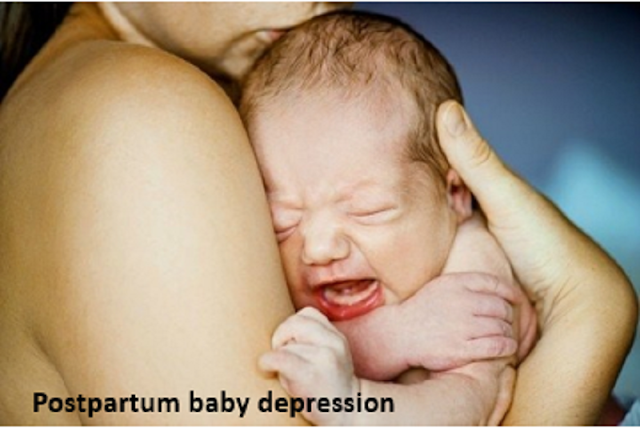In General Babies Can Also Make It Postpartum Depression
In general babies can also make it postpartum depression, this fact occurs in every mother who has
just given birth among the community. After giving birth to children, new
mothers can create an atmosphere of postpartum or postpartum depression. This happens, about 1 in every 9 women after
school. Not only new mothers, children can also learn after pregnancy, Mother.
 |
|
Postpartum depression
|
At the age of 18, children can show organic
evidence. Thus, analysts show manifestations amidst the strength of children
and cells in the body. One approach is to find something that can affect young
people by looking at the reactions of young children to those experienced by
their parents.
From the results obtained, babies with mothers
who are desperate in general will be very difficult to get along and experience
negative progressives. This investigation was suggested by the remarks of 60
mothers with children 12 weeks and according to family training to the point of
birth of half a year.
Test to see postpartum depression reactions in children
At the age of 6 years and one year, children
are taken to research facilities to examine them. Scientists and doing things
like influencing mothers for babies, one of the tests is "maybe try"
or a passive face test. In this test, guardians are needed to play children, at
that time encouraging the Little One to find out. So, this applies to newborn
people, because they depend on individuals who do not exist, not only to
satisfy hunger but also to reduce negative feelings.
 |
|
Postpartum depression
|
postpartum depression is stress or grief implies that our body
secretes the hormone cortisol. Throughout these lines, the salivation of
respondents constantly tries to see changes in cortisol content. Analysts also
collect data from various incriminating manifestations experienced by mothers.
Finally, for children half a year old,
scientists test them to spit again to measure the length of telomeres (closure
of DNA that maintains chromosomes). For example, telomeres are plastic strap
shoes, their capacity is to ensure.
Thus, an increasingly extreme manifestation of
mother's despair is firmly with cortisol levels in 6-year-old mature children.
The reaction in children with higher cortisol will generally have shorter
telomeres at one and a half years. This shows the mother's medical problems.
Refer to Conversations, individuals with shorter telomeres as a solution to
dealing with medical problems, for example, diabetes, satiety, and many
illnesses! through the spit test.
Children, it appears that they also reduce the
hormone cortisol. The decrease in this hormone also becomes even greater with
increasingly extreme findings and seen at 18 years.
 |
|
Postpartum depression
|
More attention for parents overcoming postpartum depression
Finding from these findings is primary and must
be used better, the effects of the research behind change for the better, and
for the better.
Instead of this, guardians can better
understand adolescence is a time of subtle improvement. Children begin to have
the ability to understand and express their environmental conditions.
By turning into a positive parent, you will
become more beneficial, both physically and deeply. For postpartum depressed mothers, especially individuals who have mental
disorders can also consider their condition in such a way as to have the
capacity to deal with emotional health to build a mother ...
Related article :


Comments
Post a Comment